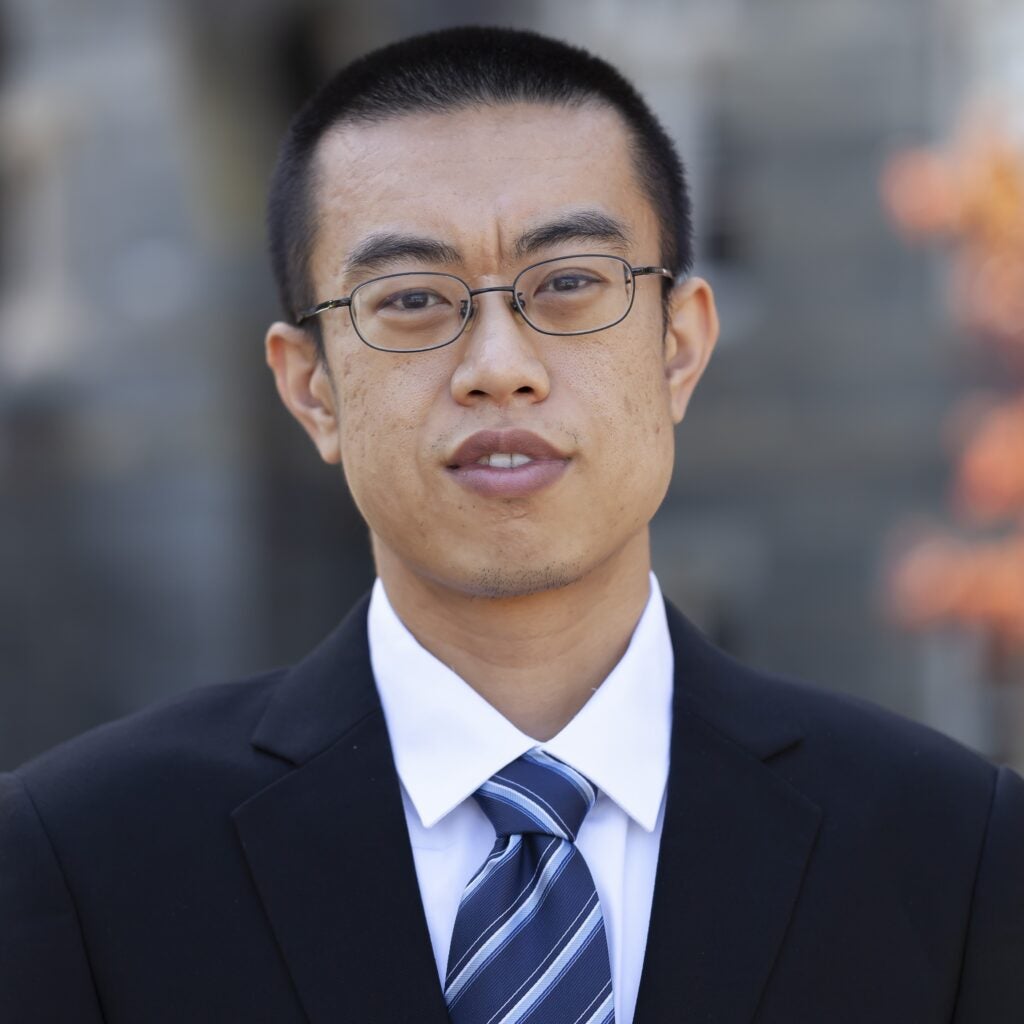Razin Lecture and Prize
The Razin Lecture is accompanied by the awarding of the Razin Prize for the best research paper by an advanced graduate student in Economics.
2024 RAZIN PRIZE and ECONOMIC POLICY LECTURE
Keynote Speaker:

John C. Haltiwanger
Distinguished University Professor
University of Maryland
“Whither Technological Innovation, Business Dynamism, and Productivity”
John C. Haltiwanger is a Distinguished University Professor in the Department of Economics at the University of Maryland. He is also the first recipient of the Dudley and Louisa Dillard Professorship in 2013. He received his Ph.D. from the Johns Hopkins University in 1981. After serving on the faculty of UCLA and Johns Hopkins, he joined the faculty at Maryland in 1987. In the late 1990s, he served as Chief Economist of the U.S. Census Bureau. He is a Research Associate of the National Bureau of Economic Research, and a Fellow of the Society of Labor Economics and the Econometric Society.
He has played a major role in developing and studying U.S. longitudinal firm-level data. Using these data, he has developed new statistical measures and analyzed the determinants of firm-level job creation, job destruction and economic performance. The statistical and measurement methods he has helped develop to measure and study firm dynamics have been increasingly used by many statistical agencies around the world.
His recent research has focused on the changing patterns of business dynamism and entrepreneurship in the U.S. His research has been recognized in his being awarded the Julius Shiskin Award for economic statistics in 2013, the Roger Herriott Award for innovation in federal statistics in 2014, the Global Entrepreneurship Research Award in 2020, and Society of Labor Economics Award for Contributions to Data and Measurement in 2021. He has published more than 150 academic articles and numerous books including Job Creation and Destruction (with Steven Davis and Scott Schuh, MIT Press).
The Razin Lecture is accompanied by the awarding of the Razin Prize for the best research paper by an advanced graduate student in Economics.
This year’s award goes to:
Prize Winner:

for his dissertation essay entitled
“The Dynamic Effects of Renewable Subsidies in the Green Energy Transition”
Dissertation Advisors: Professor John Rust and Professor Nathan Miller
Date: March 14, 2024
Fisher Colloquium
McDonough School of Business
4:00 p.m.
HISTORY OF THE RAZIN PRIZE
The Ofair Razin Prize was established in 1997 in memory of Ofair Razin (1966 – 1996; Ph.D., Georgetown University, 1996), who passed away after a long illness. The Razin Prize was established by Ofair Razin’s family and friends to honor his memory, achievements, and courage.
Each year, the Economics Department at Georgetown University takes great pride in awarding the Razin Prize for the best dissertation or research paper produced by an advanced graduate student. The prize consists of a certificate, a monetary award, and an entry on the Razin Prize plaque hanging in the Department.
Professor Assaf Razin presented the first Razin Prize to Masaru Sasaki (Ph.D. 1998) in February 1998. Dr. Sasaki’s winning paper entitled “An Equilibrium Search Model with Co-Worker Discrimination” was subsequently accepted for publication in the Journal of Labor Economics.
In 1998, the Razin family proposed that the annual award ceremony feature a lecture on economic policy by a distinguished economist. The Economic Department is grateful for the gifts that have made it possible to establish the Razin Economic Policy Lecture.
PAST RECIPIENTS & SPEAKERS OF RAZIN ECONOMIC POLICY LECTURE AND PRIZE
Recordings of prior Razin Lectures can be accessed by visiting our Georgetown University Economics YouTube Channel.
2023
Gretchen Sileo; “Proactive and Reactive Infrastructure Investment”
Thesis Advisors: Prof. John Rust & Prof. Nathan Miller
Speaker: Prof. Raj Chetty (Harvard University): “Creating Equality of Opportunity in America: New Insights from Big Data”
2022
Rodimiro Rodrigo; “Robot Adoption, Organizational Capital and the Productivity Paradox”
Thesis Advisor: Prof. Toshihiko Mukoyama
Speaker: Prof. Renee Bowen (University of California San Diego): “Demystifying Uncertainty”
2021
Maria Hernandez de Benito; “The Effect of Violent Crime on Intra-household Resource Allocation and Bargaining Power”
Thesis Advisor: Prof. Garance Genicot
Umberto Muratori; “Knowledge Diffusion, Markups, and Cohorts of Firms”
Thesis Advisor: Prof. Toshihiko Mukoyama
Speaker: Prof. Sir Christopher Pissarides (London School of Economics): “Technology and Jobs in the Post-Covid Economy.”
2020
Francisco Garrido; “Mergers Between Multi-Product Firms With Endogenous Variety: Theory and an Application to the RTE-Cereal Industry”
Thesis Advisor: Prof. John Rust and Prof. Nathan Miller
Speaker: Prof. Janet Currie (Princeton University): “Child Mental Health as Human Capital”
2019
Becka Brolinson; “Does Increasing Block Pricing Decrease Energy Use?”
Evidence from the Residential Electricity Market?
Thesis Advisor: Prof. Arik Levinson
Speaker: Prof. Pinelopi Goldberg (Yale University): “Trade Policy and Economic Research in an Era of Growing Inequality”
2018
Allison Stashko; “Do Police Maximize Arrests or Minimize Crime? Evidence from Racial profiling in U.S. cities.”
Thesis Advisor: Prof. Garance Genicot and Prof. Laurent Bouton
Speaker: Prof. Jonathan Gruber (Massachusetts Institute of Technology): “The Past, Present and Future of Health Care Reform”
2017
Ammar Farooq; “The U-Shape of Over-education? Human Capital Dynamics & Occupational Mobility over the Life-cycle.”
Thesis Advisor: Prof. James Albrecht, Prof. Susan Vroman, Prof. Axel Anderson, and Prof. Adriana Kugler
Speaker: Prof. Alan B. Krueger (Princeton University): “The Changing Nature of Work”
2016
Jordan Marcusse; “Wage Bargaining and the Beveridge Curve.”
Thesis Advisor: Prof. James Albrecht, Prof. Axel Anderson, Prof. Susan Vroman, and Prof. Luca Flabbi
Speaker: Prof. Austan Goolsbee (University of Chicago): “Are We Doomed? The American Economy Now and into the Future”
2015
Jason Albert; “Strategic Dynamics of Antibiotic Use and the Evolution of Antibiotic-Resistant Infection.”
Thesis Advisor: Prof. Luca Anderlini, Prof. Roger Lagunoff, and Prof. John Rust
Speaker: Prof. George Akerlof (Georgetown University): “Phishing for Phools”
2014
James O’Brien; “Age, Autos, and the Value of a Statistical Life.”
Thesis Advisor: Prof. Arik Levinson
Speaker: Prof. Assaf Razin (Cornell University and Tel Aviv University): “Liquidity Crises, Currency Crises, and the Euro Crisis: Analytical View.”
2013
Mauricio Tejada; “Dual Labor Markets and Labor Protection in an Estimated Search and Matching Model.”
Thesis Advisor: Prof. Luca Flabbi
Speaker: Prof. Ronny Razin (London School of Economics): “The Debate about Online Debates: What can we learn from Economic Theory”
2012
David Phillips; “Getting to Work: Experimental Evidence on Job Search and Transportation Costs.”
Thesis Advisor: Prof. William Jack
Speaker: Prof. David Card (University of California, Berkeley): “Social Interactions.”
2011
Jose-Daniel Reyes; “Product Standards Harmonization and Firm Heterogeneity in International Trade.”
Thesis Advisor: Prof. Rodney Ludema
Speaker: Prof. Thomas F. Cooley (NYU Stern School of Business): “Demography and Capital Flows.”
2010
Helena Aten; “Competing Informed Principals and Representative Democracy.”
Thesis Advisors: Prof. Luca Anderlini and Prof. Roger Lagunoff
Speaker: Prof. Olivier Blanchard (M.I.T., I.M.F.); “Rethinking Macroeconomic Policy.”
2009
Alejandro Badel; “Understanding Black-White Inequality: Residential Segregation and Neighborhood Human Capital Expenditures.”
Thesis Advisor: Prof. Mark Huggett
Speaker: Prof. Michael Greenstone (M.I.T.); “Climate Change, Mortality, and Adaptation in the United States and India.”
2008
T. Renee Bowen; “Dynamic Compromise and Political Institutions.”
Thesis Advisor: Prof. Roger Lagunoff
Speaker: Prof. Joel Slemrod (University of Michigan); “The Perfect Tax Storm of 2009, 2010, and 2011.”
2007
Camilo Mondragon; “Entrepreneurship, Human Capital and Wealth”
Thesis Advisor: Prof. Mark Huggett
Speaker: Prof. Dani Rodrik (Harvard University); “Why Does the Real Exchange Rate Matter to Growth?”
2006
Victoria Hnatkovska; “International Risk Sharing and Portfolio Choice with Incomplete Asset Markets.”
Thesis Advisor: Prof. Martin Evans
Speaker: Prof. Cecilia Rouse, “What Do We Know About School Choice?”
2005
Jens Sondergaard; “Variable Capital Utilization, Staggered Wages and Real Exchange Rate Persistence.”
Thesis Advisor: Prof. Behzad Diba
Speaker: Prof. Kaushik Basu, “International Labor Standards and Labor Welfare.”
2004
Edouard Vidon; “Human Capital Gains from Unemployment Insurance in a Life-Cycle Search Model.”
Thesis Advisor: Prof. Mark Huggett
Speaker: Prof. Ken Rogoff, “Calm before the Storm: Preparing for the next round of international financial crises.”
2003
Rodrigo Harrison; “Equilibrium Selection in Global Games with Strategic Substitutes.”
Thesis Advisor: Prof. Roger Lagunoff
Speaker: Prof. Paul Krugman, “Depression economics: still returning?”
2002
Matthew Haag; “Reciprocal Entry and Strategic Delay.”
Thesis Advisor: Prof. Roger Lagunoff
Speaker: Prof. Jeffrey Sachs, “Macroeconomics and Health: Investing in Health and Economic Development.”
2001
Taizo Takeno; “Trade and Environmental Policy under Asymmetric Information.”
Thesis Advisor: Prof. Rodney Ludema
Speaker: Mr. Michael Mussa, Economic Counsellor and the Director of the Department of Research at the
International Monetary Fund, “The State of the Global Economy.”
2000
Gabriel González-König; “Return Migration: Theory and Evidence from Returning Migrants to Western Mexico.”
Thesis Advisors: Prof. James Albrecht and Prof. Susan Vroman
Speaker: Prof. Elhanan Helpman, Harvard University, “Productivity of Nations.”
1999
Shihua Lu; “Industrial Evolution and Import Competition: A Micro-Level Structural Analysis.”
Thesis Advisor: Prof. James R. Tybout
Speaker: Stanley Fischer, International Monetary Fund, “The IMF as Lender of Last Resort.”
1998
Masaru Sasaki: “An Equilibrium Search Model with Co-Worker Discrimination.”
Thesis Advisors: Prof. James Albrecht, Prof. Susan Collins, Prof. Susan Vroman
Speaker: Prof. Assaf Razin: “Determinants and Consequences of Current Account Reversals and Currency Crisis.”
PRIZE NAMED IN MEMORY OF OFAIR RAZIN
Ofair Razin was born on January 27, 1966, in Kibbutz Shamir in Israel, near the Golan Heights. He grew up, in Chicago, where his father was a Ph.D. student, and later in Tel Aviv, where he attended Alliance (Kol Israel Chaverim) High School.
After graduation, he was drafted into the Israeli Army for 4 years. Although already handicapped, he went through the intensive officer-training course so as to make the compulsory service more meaningful. The source of his physical disability was not properly diagnosed as Multiple Sclerosis (MS) until his last year of army service.
Ofair attended college at Tel Aviv University, double-majoring in Economics and Psychology. After graduating, he entered the Ph.D. Program in Economics at Georgetown University. Ofair faced two challenges; his increasingly incapacitating illness and a rigorous course of study. During the final stage of the doctoral program, Ofair worked mostly at home under the guidance of his dissertation advisor, Professor Susan Collins.
In the summers while at Georgetown, Ofair had the opportunity to work in the research department of the World Bank. He gained experience with data analysis, which was useful for the dissertation that he completed a few weeks before his death on December 16, 1996. His Ph.D. was awarded posthumously.
The main chapter of his dissertation was prepared by Professor Collins for publication after his death. It now appears as Chapter 3: “Real Exchange Rate Misalignments and Growth,” by Ofair Razin and Susan Collins, in The Economics of Globalization: Policy Perspectives From Public Economics (Assaf Razin and Efraim Sadka, eds., Cambridge University Press, April 1999). The book is dedicated to Ofair’s memory.
